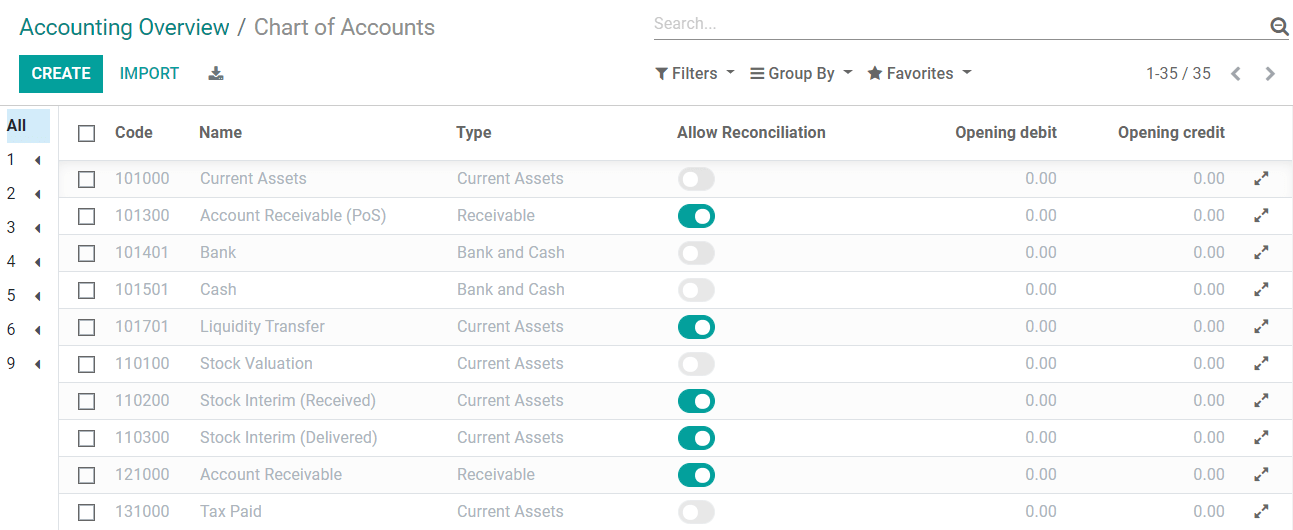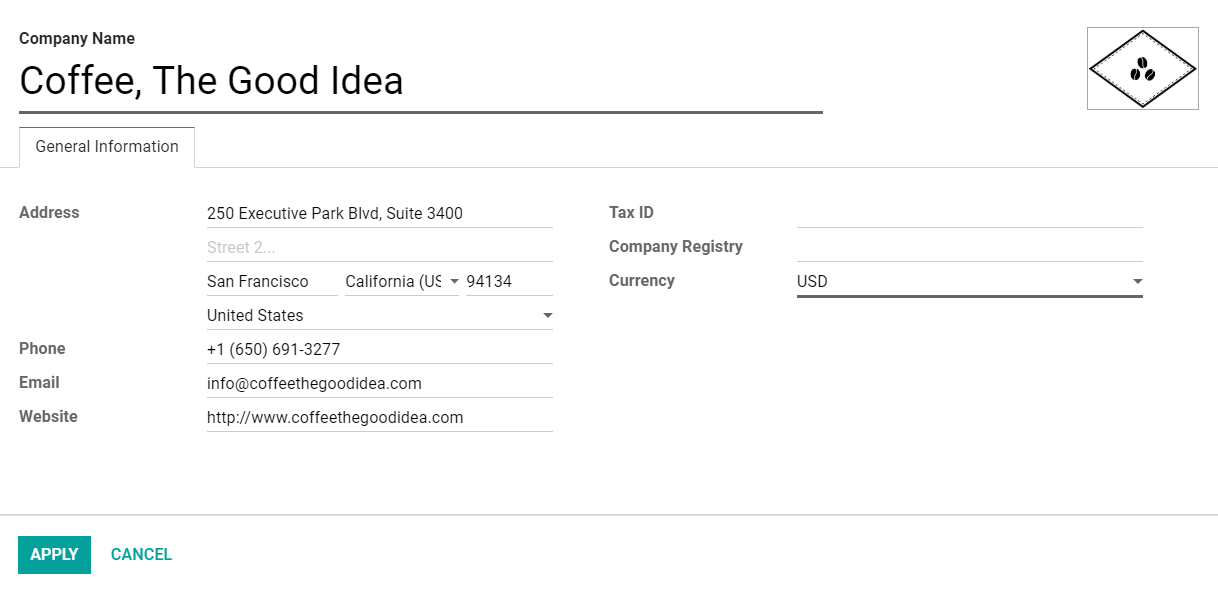Ga van start¶
When you first open your Odoo Accounting app, the Accounting Dashboard welcomes you with a step-by-step onboarding banner, a wizard that helps you get started. This onboarding banner is displayed until you choose to close it.
The settings visible in the onboarding banner can still be modified later by going to .
Notitie
Odoo Accounting automatically installs the appropriate Fiscal Localization Package for your company, according to the country selected at the creation of the database. This way, the right accounts, reports, and taxes are ready-to-go. Click here for more information about Fiscal Localization Packages.
Periodes¶
Define the Fiscal Years’ opening and closing dates, which are used to generate reports automatically, and set your Tax Return Periodicity, along with a reminder to never miss a tax return deadline.
By default, the opening date is set on the 1st of January and the closing date on the 31st of December, as this is the most common use.
Notitie
You can also change these settings by going to and updating the values.
Bankrekening¶
Connect your bank account to your database and have your bank statements synced automatically. To do so, find your bank in the list, click Connect, and follow the instructions on-screen.
Notitie
Click here for more information about this feature.
If your Bank Institution can’t be synchronized automatically, or if you prefer not to sync it with your database, you can also configure your bank account manually by typing its name, clicking Create your Bank Account, and filling out the form.
Name: the bank account’s name, as displayed in Odoo.
Account Number: your bank account number (IBAN in Europe).
Bank: click Create and edit to configure the bank’s details. Add the bank institution’s Name and its Identifier Code (BIC or SWIFT).
Code: this code is your Journal’s Short Code, as displayed in Odoo. By default, Odoo creates a new Journal with this short code.
Journal: This field is displayed if you have an existing bank journal that is not linked yet to a bank account. If so, then select the Journal you want to use to record the financial transactions linked to this bank account or create a new one by clicking Create and Edit.
Notitie
You can add as many bank accounts as needed with this tool by going to .
Click here for more information about Bank Accounts.
Btw¶
This menu allows you to create new taxes, (de)activate, or modify existing taxes. Depending on the localization package installed on your database, taxes required for your country are already configured.
Notitie
Click here for more information about taxes.
Grootboekschema¶
With this menu, you can add accounts to your Chart of Accounts and indicate their initial opening balances.
Basic settings are displayed on this page to help you review your Chart of Accounts. To access all the settings of an account, click on the Setup button at the end of the line.

Notitie
Click here for more information on how to configure your Chart of Accounts.
Bedrijfsgegevens¶
This form allows you to add your company’s details, such as the name, address, logo, website, phone number, email address, and Tax ID or VAT number. These details are then displayed on your documents, such as invoices.

Notitie
You can also change the company’s details by going to , scrolling down to the Companies section, and Update Info.
Bankrekening¶
Use this button to create and link a bank account in Odoo. To add additional bank accounts, go to Invoicing –> Configuration –> Add a Bank Account and configure the fields.
Tip
Synchronize your bank account(s) with your Odoo database to automatically update your bank transactions.
Factuurlayout¶
Use this button to customize the default invoice layout.
Notitie
You can also change the invoice layout by going to , scrolling down to the Companies section, and clicking Configure Document Layout.
Invoice Creation¶
This button takes you to the invoice creation view, where you can create your first invoice.
Tip
Add your bank account number and a link to your General Terms & Condition in the footer. This way, your contacts can find the full content of your GT&C online without having to print them on the invoices you issue.
Zie ook

